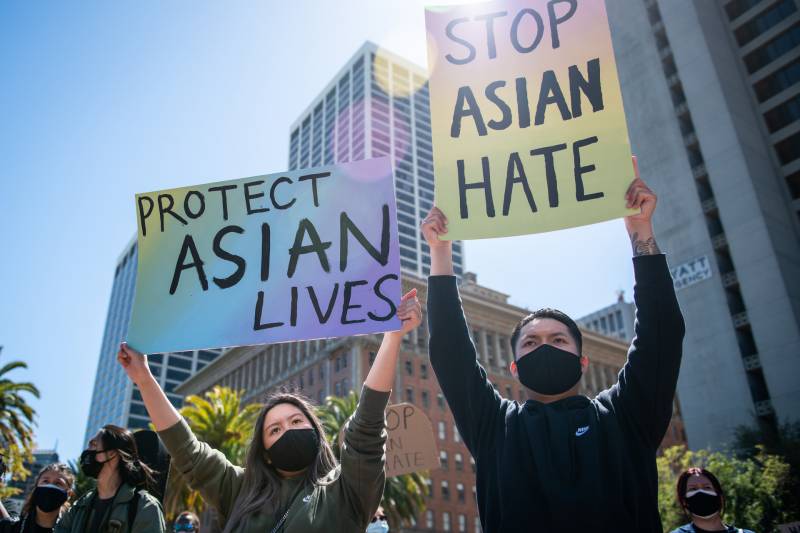The other interesting fact we found from our research is that certain groups get more information about our community not from news, but actually from TV and movies. And if you see from our data as well, another startling statistic is that still, in movies and TV shows, Asian Americans are still largely portrayed in very stereotypical ways as martial artists, gangsters and sex workers.
This report found that most Americans can't name a prominent Asian American. And when asked if they could, the top three names were Jackie Chan, Bruce Lee and Lucy Liu.
Those are the top three we got last year, as well. Jackie Chan is not American; he's from Hong Kong. Bruce Lee's been dead for almost 50 years. Lucy Liu hasn’t been in recent movies. It just shows you how invisible our community is still in our society.
New this year is a question about belonging — how much Asian Americans and other ethnic groups feel they belong in America.
This is one of our most interesting questions this year. When asked this question of how much they feel like they belong and are accepted in America, Asian Americans were the least of all racial groups to have that sentiment.
And even for Asian Americans born in the U.S. — which is really surprising — because you figure if you're born in the U.S., language is not an issue, you understand the culture. And because of the anti-Asian American sentiment, the lack of role models in the corporate world and media, Asian American youth, in particular, really feel this question of not feeling like they belong in the U.S.
You mentioned that this report builds on work from last year during the pandemic, but it also begins with the statement that we can no longer blame the pandemic or awful political rhetoric. But what role have these things played in fueling hate?
Last year we asked people what they thought the causes were for the anti-Asian American hate, even in 2020, and people cited COVID and the previous president.
But this year, with the new administration and the waning of COVID, clearly with increasing attacks, those are not the main causes. So, what we're finding, and this is revealing, is that there are systemic issues of racism against the AAPI community that go back literally hundreds of years. So political rhetoric and crises clearly create tensions — but underneath all of this is embedded racism against the AAPI community.
There is some good news in this report, though. It's that a majority of Americans, just over 70%, believe anti-AAPI racism should be addressed. So what can be done?
There are several concrete areas that are necessary to address this issue. Overwhelmingly, our research and our work are to increase education of Asian American history, experiences and narratives. Very few students in America now receive information about Asian American history in their schools. But there's good news in that there are a few states, particularly Illinois and New Jersey, that are mandating the teaching of AAPI history in their classrooms. That's really fantastic.
Other areas that need to be changed are increased narratives about Asian Americans in a more authentic and accurate way — not these stereotypes that we've seen in the past.
Lastly, our research really points out the opportunity and the need for more allyship between the Asian American community, the Black community and the Latino community. Many of the issues that Asian Americans face are unfortunately also faced by the Black community and Latino community.

